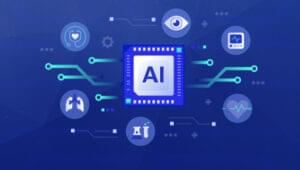In the last few months there has been quite a lot of discussion on CRM (customer relationship management) solutions in the forums and ezines. Although it is extremely positive that people have finally started to talk about the one concept that will make the future of a business successful or unsuccessful, there are quite a few misconceptions about the term. Those misconceptions make people lose time and energy finding solutions in areas they should not be even searching, instead of concentrating on the really important things.
First, the simplest and the least obvious: Customer Relationship Management is about RELATIONS between people. Yes, business is done by people, not companies. Business did exist before computers, so relations between business people existed before computers, i.e. CRM was not invented with the invention of computers (just the name CRM was).
The good practices of relating with your customer did not become obsolete with the introduction of computers, though the TOOLS changed. So we use the same practices, but we take advantage of the possibilities that technology gives. It certainly is a different experience for the buyer if he is met on the web site by a human voice or keyboard chat (LivePerson, FireTalk, HumanClick) which is what technology now makes possible. The technology enables us to see how the customer is navigating through the site, and, if we want to, interrupt him and offer assistance. But I wonder whether the customer will welcome that. If you are a salesman in a brick and mortar store, you would watch the expression of the customer, based on that, decide to approach him or not. On the net you cannot see his face (it’s questionable if he’ll let you even if possible). In any case, CRM is NOT technology, so you will not find your CRM solution among SW vendors. Which brings us to the misconception number two.
Business people tend to search for a CRM solution among SW developers and vendors. “They know the technology, which I (the business manager) don’t know, so they will know my needs and how to implement them”. If a business manager would object to such a suggestion he would be labeled “old” and “overdue”. In todays fast business lane, fortunes are made fast, and young managers tend to “buy” a CRM software solution. CRM should already be in place, functioning, BEFORE starting IT implementation (who has to forward which info to whom to be ready for who, when? Who has to respond to what in how much time?). CRM Software solution is only a TOOL for procedures already in place. Let me draw a parallel.
With the invention of cars, the way we conduct business changed. We could do much more business and do it better. But never once has it occurred to us to let auto designers lead and ENFORCE the way we are building relations with our customers. So why does everybody think that software designers are capable of that?
They might be brilliant SW developers, but still they wouldn’t know how to enhance customer retention in a company manufacturing furniture. So why do we try this? Because it is easier not to lose time over enforcement of customer retention rules in our own company, when we can pay someone to do it. Because we have the money, but we don’t have the TIME. Well, we can’t do that. We cannot avoid our involvement in the process (and our hours, of course), although I know most of you didn’t want to hear this. Which brings us to the misconception number three.
You search for a SW solution for your CRM, buy it, and let those people do their job. As a good manager, you organize weekly meetings to have your finger on things. Because you selected a SW vendor which is a respectable company, the first thing those people do, is to organize an internal audit. They pass out forms to people in different departments, to find out exactly what are the needs of different parts of your company. Alternatively, they conduct interviews. And that is good. That is much better than them trying to force their “proven” flow of documentation upon your company. But what they are actually doing is LEARNING the way your company functions. And the teaching is done by people who work in each department, that most probably don’t have the whole picture. So the integration of the whole picture is done by the SW vendor. Can they learn this in a fortnight or a month?
I would suggest another approach. Find an “oldie” within your company, preferably one year from retirement. The one that does know how your company lives. Who preferably worked a bit in sales, a bit in procurement and a bit in support or reclamation. If he doesn’t like computers, all the better. If he later likes the results, you can be assured everyone else will. Assign him full-time as a liaison, and let him guide the implementation. Have everyone know all the doors must be kept open for him. Remember,CRM implementation is about KNOWLEDGE of how your company functions. It is about how EXISTING customer care procedures (remember misconception number one?) are to be automated (complemented, modified) by computers. And if there is no such person(s) within your company? Well, that leaves YOU. I bet you didn’t want to hear this, but remember that everyday customer relation procedures will be done by your people, not the SW vendor. Which brings us to misconception number four.
CRM is sales automation. No, no, no, it is customer support. No,no, no, it’s the lady who says hello answering the phone on the helpdesk. No, no, no, it’s the operator who chats with the potential customer on the web site. Actually, it is all of the above. In a company, sales people seldom talk with the support people and vice-versa. As if those were two different non competing companies so they have little to talk about. The last few months everybody has been talking about customer retention. Which is normal as it is much easier and cheaper to sell again to an existing customer, than to get a new one. That is, only if he received good customer support and service. So a good CRM SW solution would have some data common to everybody (name, address, phone, etc), but also data needed by sales, procurement, helpdesk and support. This does not mean you have to have an ERP system, it just means that you need some extra fields which are specific to each department. Ideally, you yourself would be able to add some extra fields as needed, without becoming a programmer. Which brings us to misconception number five.
After the first year of coughing and hiccuping, your CRM solution is finally in place and humming nicely. You are getting all that nice data you needed, and you are finally able to watch and build your customer relations. So you are home and free. If you need an extra report, or an extra field, you’ll call the SW vendor and he will make the necessary changes. Well, that’s not entirely true. The life of your company is not static. It changes daily. The same way, your CRM solution cannot be static.
If your sales person needs to call an IT liaison, explain to him the change he needs, then to the SW developer, then wait for implementation, you can be sure that he will not do it. He will rather scribble it into his note book or the Excel sheet on his notebook. He should be able to do just that in your CRM solution. Which means you should have a modifiable solution, one in which you can add fields and tell the system how to handle them. But that means you will have to invest time to learn how to do it. Or leave it for later when you will have more time. Which is misconception number six.
People tend to search for a CRM software solution when they cannot cope any more with the traffic. By then, it is too late. It is late in the sense that you have to implement a solution in which you have to invest time, and time you don’t have. That means that the implementation will be much longer, it will cost much more in hours, lost business, poor customer service. Which means you will spend more hours dealing with a customer, you will have less hours in sales, you will have to hire more people… There is no nice way to tell you, so I will say it straight out: You should start implementing a CRM system, the moment you start using a PC in promotion and sales. And that is now, isn’t it?
So what really is the difference between a CRM software system and old, traditional relations with your customers? Documentation and analysis. With a CRM software system you have historical data which you can analyze. Analyzing our customer support data we found that about 60% of our helpdesk activity was done with new customers (within 2 months of purchase) which is normal, but about 90% of those incidents were trivial questions about simple use of functions. Although we were issuing three manuals and giving a six day course to our customers, we decided to issue a special cookbook for novices, based on the most common questions. The style was light, simple and straightforward, one page max per function. It was a double jeopardy. Novice interventions dropped to about 30% and the customers had a feeling they were driving the system, not the other way around. So we were both happy. And that’s called customer satisfaction, right?
Frequently Asked Questions about Technology and CRM Customization
What is the role of technology in CRM customization?
Technology plays a pivotal role in CRM customization. It provides the tools and platforms that allow businesses to tailor their CRM systems according to their specific needs. This includes features like data analytics, automation, and integration capabilities. However, it’s important to note that technology alone is not the answer. Successful CRM customization also requires a deep understanding of your business processes, customer needs, and strategic goals.
Why is customization important in a CRM system?
Customization in a CRM system is crucial because it allows businesses to adapt the system to their unique needs and processes. This can lead to improved efficiency, better customer service, and ultimately, increased sales and profitability. Customization can include features like custom fields, workflows, and reports, as well as integrations with other business systems.
How can I ensure successful CRM customization?
Successful CRM customization requires a combination of the right technology, a clear understanding of your business needs, and effective implementation. This includes choosing a CRM system that offers the customization options you need, clearly defining your business processes and customer needs, and ensuring that the system is properly implemented and used by your team.
What are the potential challenges in CRM customization?
CRM customization can present several challenges. These can include technical difficulties, resistance from staff, and the risk of over-customization. It’s important to carefully plan your customization strategy, provide adequate training and support for your team, and regularly review and adjust your system as needed.
How does CRM customization impact customer service?
CRM customization can significantly improve customer service. By tailoring the system to your specific needs, you can ensure that your team has access to the right information at the right time. This can lead to faster response times, more personalized service, and ultimately, higher customer satisfaction.
Can I customize my CRM system myself?
While some CRM systems offer user-friendly customization options, others may require technical expertise. It’s important to choose a system that matches your capabilities and resources. If necessary, you can also seek help from a CRM consultant or service provider.
What are the benefits of integrating other business systems with my CRM?
Integrating other business systems with your CRM can provide several benefits. This can include improved data accuracy, increased efficiency, and a more holistic view of your customers. However, integration can also present technical challenges, so it’s important to carefully plan and implement your integration strategy.
How can I avoid over-customization in my CRM system?
Over-customization can lead to a complex and difficult-to-use system. To avoid this, it’s important to clearly define your needs and goals, and only customize the features that directly support these. Regularly reviewing and adjusting your system can also help to keep it streamlined and effective.
How does CRM customization support data analysis?
CRM customization can greatly enhance your data analysis capabilities. By customizing your data fields and reports, you can ensure that you’re collecting and analyzing the right data for your business. This can lead to more accurate insights and better decision-making.
What is the future of CRM customization?
The future of CRM customization is likely to involve more advanced technologies like artificial intelligence and machine learning. These technologies can help to automate and enhance customization, making it easier and more effective. However, as always, successful customization will also require a clear understanding of your business needs and goals.
Dinko is CEO at Caprio HelpDesk, which offers fully customizable CRM solutions for small business.




